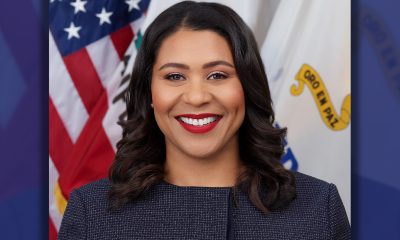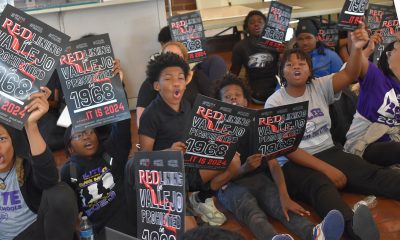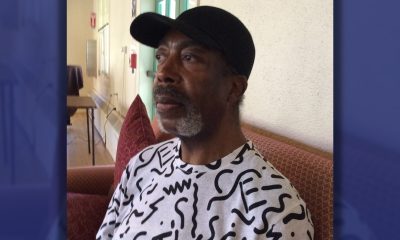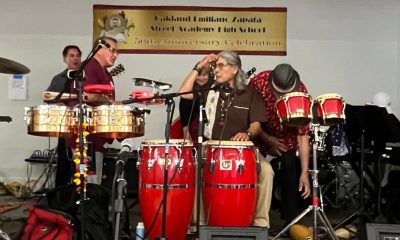Commentary
No Further Delays on Launching MACRO!
City Administration must implement Civilian Crisis Responders Program and keep planned community advisory board
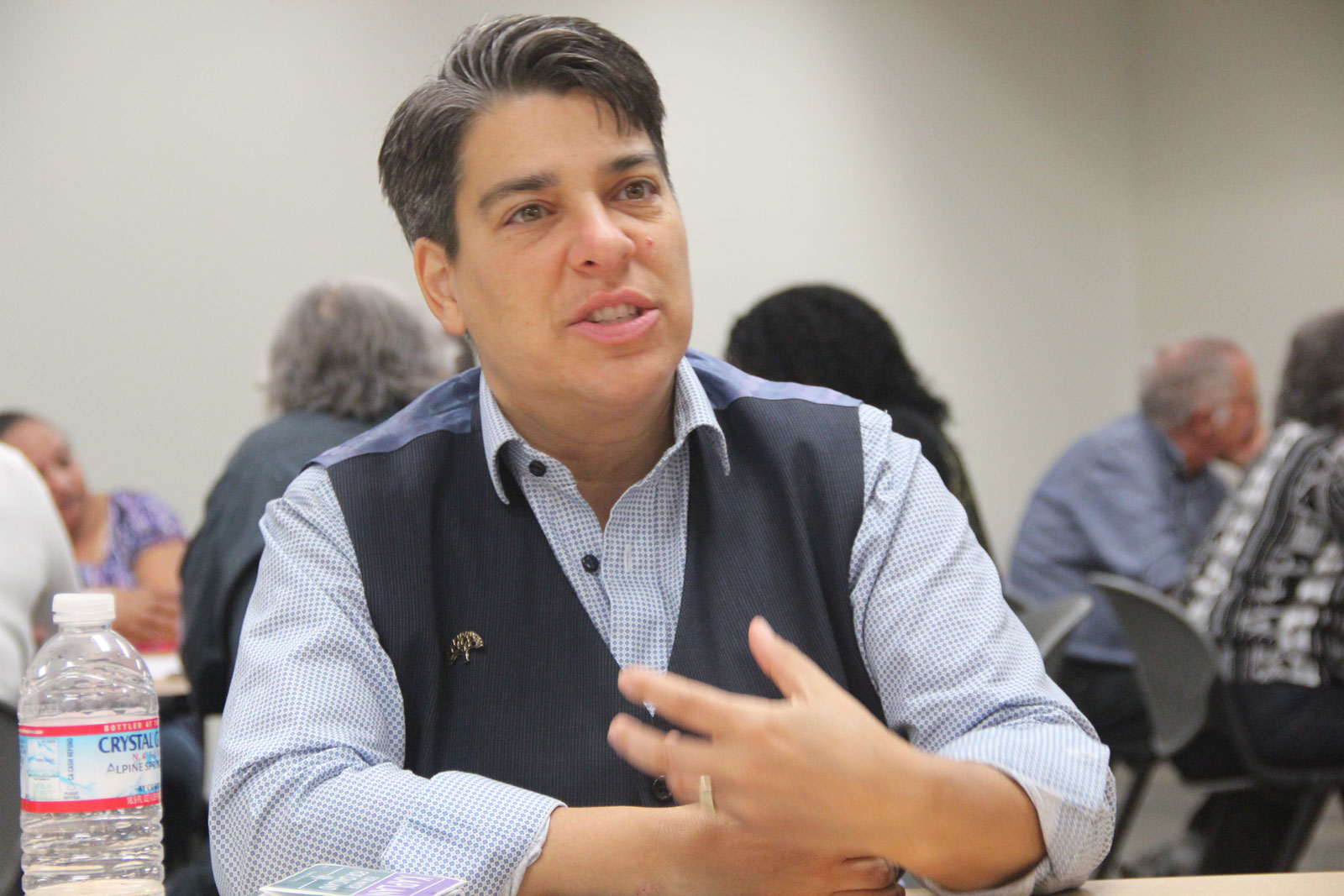
COMMENTARY
At this week’s Public Safety Committee, councilmembers received an update on the status of launching Oakland’s emergency civilian responder program, Mobile Assistance Community Responders of Oakland (MACRO).
I, along with my Council colleagues, call on the City Administration for the speedy implementation of this important public safety service as an in-house program and to include meaningful community input and involvement, as was previously directed by the Council to include a community oversight board.
The implementation of this program is highly awaited and urgently needed, as the goal is to provide services to those experiencing non-violent crises. A Community Intervention Specialist, Emergency Medical Technician, and a Case Manager would respond to non-violent crisis calls, rather than a police officer.
This would simultaneously free police to respond to violent crimes.
In 2019, the idea of this program was presented as part of my budget proposal, with strong grassroots community backing and an informational memo brought by Councilmember Noel Gallo.
That same year, I successfully allocated the funding for the feasibility study of creating this civilian mobile response program in my budget amendments.
The City Council then approved $1.85 million in the FY 2020-21 Mid-Cycle Budget Amendments (88174 CMS) to implement the proposed program. On Dec. 15, 2020, my resolution to pursue the option for in-house hiring process for MACRO was adopted (88433 CMS).
In 2020, the City Council, along with strong community support, pushed to fund the launching of the pilot. With the goal of improving coordination, response, and creating job opportunities for the communities in which MACRO will be launched, Council, along with community grass-roots organizations, called on the program to be launched as an internal city program.
Earlier this year, Noel Gallo and President Pro Tem Sheng Thao advocated to have the program in-house within the Oakland Fire Department (OFD). Bas and Councilmember Dan Kalb introduced the resolution that was unanimously adopted by Council directing the establishment of MACRO within OFD and creating an Advisory Board, which would consist of crisis health service experts, individuals impacted by the criminal legal system, unsheltered individuals, domestic violence survivors, youth, and/or survivors of state violence, to serve as advisory partners to the Oakland Fire Department in further developing MACRO.
The state has shown support of MACRO by responding to my advocacy letter, asking for funding; Senator Skinner included $10 million for the launch of MACRO in the state budget.
Meanwhile, other cities have successfully launched similar programs including Olympia, Wash., Portland, Ore., and Albuquerque, N.M.
Thanks to strong grassroots advocacy working together with Council members, we were able to pass the proposal to launch civilian responders for Oakland, and to win funding in both the city budget and state budget to support this vital public need.
We know that this type of program can save dollars and save lives. We call on the administration to launch it timely and effectively, and include vital community input, to ensure success.
“It’s urgent that the Administration implement MACRO, Oakland’s mobile crisis response program in the Fire Department. Oaklanders agree that we need medical professionals and crisis responders to address mental health and other non-violent issues, allowing police to focus on violent crime,” said Bas.
Gallo said, “I am thankful for my colleagues on the council who supported launching MACRO in-house in the fire department. Working together we can provide effective civilian responders to provide community needs and handle low-level calls that do not require a police officer.”
Added Thao, “The City Council committed to its goals to reimagine public safety with the funding of the MACRO program, and I join my colleagues and the community in urging the City Administration to implement this important emergency response program. Oakland cannot wait for this common sense and holistic approach to public safety any longer.”
Watch the September 14 Public Safety Committee Zoom Meeting at: https://us02web.zoom.us/j/87171430933
“The Oakland Post’s coverage of local news in Alameda County is supported by the Ethnic Media Sustainability Initiative, a program created by California Black Media and Ethnic Media Services to support community newspapers across California.”
Commentary
Opinion: Lessons for Current Student Protesters From a San Francisco State Strike Veteran
How the nation’s first College of Ethnic studies came about, bringing together Latino, African American and Asian American disciplines may offer some clues as to how to ease the current turmoil on American college campuses over the Israel-Hamas war. After the deadline passed to end the Columbia University encampment by 2 p.m. Monday, student protesters blockaded and occupied Hamilton Hall in a symbolic move early Tuesday morning. Protesters did the same in 1968.

By Emil Guillermo
How the nation’s first College of Ethnic studies came about, bringing together Latino, African American and Asian American disciplines may offer some clues as to how to ease the current turmoil on American college campuses over the Israel-Hamas war.
After the deadline passed to end the Columbia University encampment by 2 p.m. Monday, student protesters blockaded and occupied Hamilton Hall in a symbolic move early Tuesday morning.
Protesters did the same in 1968.
That made me think of San Francisco State University, 1968.
The news was filled with call backs to practically every student protest in the past six decades as arrests mounted into hundreds on nearly two dozen campuses around the country.
In 1970, the protests at Kent State were over the Vietnam War. Ohio National Guardsmen came in, opened fire, and killed four students.
Less than two weeks later that year, civil rights activists outside a dormitory at Jackson State were confronted by armed police. Two African American students were killed, twelve injured.
But again, I didn’t hear anyone mention San Francisco State University, 1968.
That protest addressed all the issues of the day and more. The student strike at SFSU was against the Vietnam war.
That final goal was eventually achieved, but there was violence, sparked mostly by “outside agitators,” who were confronted by police.
“People used the term ‘off the pigs’ but it was more rally rhetoric than a call to action (to actually kill police),” said Daniel Phil Gonzales, who was one of the strikers in 1968.
Gonzales, known as the go-to resource among Filipino American scholars for decades, went on to teach at what was the positive outcome of the strike, San Francisco State University’s College of Ethnic Studies. It’s believed to be the first of its kind in the nation. Gonzales recently retired after more than 50 years as professor.
As for today’s protests, Gonzales is dismayed that the students have constantly dealt with charges of antisemitism.
“It stymies conversation and encourages further polarization and the possibility of violent confrontation,” he said. “You’re going to be labeled pro-Hamas or pro-terrorist.”
That’s happening now. But we forget we are dealing not with Hamas proxies. We are dealing with students.
Gonzales said that was a key lesson at SF State’s strike. The main coalition driving the strike was aided by self-policing from inside of the movement. “That’s very difficult to maintain. Once you start this kind of activity, you don’t know who’s going to join,” he said.
Gonzales believes that in the current situation, there is a patch of humanity, common ground, where one can be both pro-Palestine and pro-Israel. He said it’s made difficult if you stand against the belligerent policies of Benjamin Netanyahu. In that case, you’re likely to be labeled antisemitic.
Despite that, Gonzales is in solidarity with the protesters and the people of Gaza, generally. Not Hamas. And he sees how most of the young people protesting are in shock at what he called the “duration of the absolute inhumane kind of persecution and prosecution of the Palestinians carried out by the Israeli government.”
As a survivor of campus protest decades ago, Gonzales offered some advice to the student protesters of 2024.
“You have to have a definable goal, but right now the path to that goal is unclear,” he said.
About the Author
Emil Guillermo is a journalist and commentator. A veteran newsman in TV and print, he is a former host of NPR’s “All Things Considered.”
Activism
Oakland Post: Week of May 1 – 7, 2024
The printed Weekly Edition of the Oakland Post: Week of May 1 – 7, 2024

To enlarge your view of this issue, use the slider, magnifying glass icon or full page icon in the lower right corner of the browser window. ![]()
Activism
Oakland Post: Week of April 24 – 30, 2024
The printed Weekly Edition of the Oakland Post: Week of April 24 – 30, 2024

To enlarge your view of this issue, use the slider, magnifying glass icon or full page icon in the lower right corner of the browser window. ![]()
-

 Community3 weeks ago
Community3 weeks agoFinancial Assistance Bill for Descendants of Enslaved Persons to Help Them Purchase, Own, or Maintain a Home
-

 Business3 weeks ago
Business3 weeks agoV.P. Kamala Harris: Americans With Criminal Records Will Soon Be Eligible for SBA Loans
-

 Activism4 weeks ago
Activism4 weeks agoOakland Post: Week of April 10 – 16, 2024
-

 Community3 weeks ago
Community3 weeks agoAG Bonta Says Oakland School Leaders Should Comply with State Laws to Avoid ‘Disparate Harm’ When Closing or Merging Schools
-

 Activism2 weeks ago
Activism2 weeks agoOakland Post: Week of April 24 – 30, 2024
-

 City Government4 days ago
City Government4 days agoCourt Throws Out Law That Allowed Californians to Build Duplexes, Triplexes and RDUs on Their Properties
-

 Community2 weeks ago
Community2 weeks agoRichmond Nonprofit Helps Ex-Felons Get Back on Their Feet
-

 Community2 weeks ago
Community2 weeks agoOakland WNBA Player to be Inducted Into Hall of Fame

